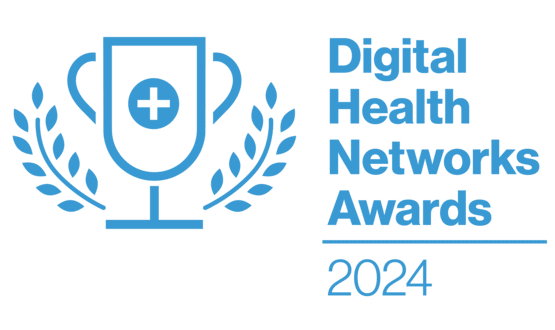The rise of the CCIO, a US view
- 17 August 2012

With technology playing an ever-increasing role in the healthcare industry – the Information Strategy, reforms, and continued Electronic Patient Record rollouts – suddenly the Chief Clinical Information Officer is starting to become a hot property.
Almost every major aspect of clinical and administrative operations in healthcare now has a significant IT component as NHS trusts look at increasing efficiencies and improving security by deploying innovative technology. But what, exactly, is the CCIO?
The doc who ‘speaks tech’
The CCIO is the doctor who ‘speaks tech’, bridging the gap between the IT and medical practice. The CCIO exerts clinical experience onto technology roll-outs, ensuring that implementations will be executed with the best interests of care providers at heart, and fit seamlessly into clinical workflows. Equipped with medical and IT knowledge, the CCIO can make informed decisions about healthcare IT implementations.
Will the CCIO fit in?
But the C-suite, or board, of any hospital or healthcare system has always been an exclusive club. The sense out there seems to be that the CIO position or its equivalent has been accepted into the club as a well-established need. But what about this new role of the CCIO? Will it fit in? Is there enough work and need to go around?
Well, I think the answer, more and more, is yes. Plenty of need, and plenty to do. At a growing number of hospitals, traditional CIOs are overwhelmingly inundated, faced with so many projects and limited time. At Beth Israel Deaconess Medical Center, where I practice, the CIO functions as both the CIO and CCIO, but generally the job requires more than one person. So much depends on integrating technology with patient care and clinical leadership and there is an ever-growing need for what a Gartner representative described as "a human bridge".
Hospitals are increasingly tasked with optimising information systems like EPRs to encourage adoption and utilisation, while avoiding clinician disenchantment with technology. They need to deal effectively with the security/efficiency issues associated with a phenomenon on the scale of bring your own devices (BYOD), and the CCIO is one good step to help achieve this.
CCIO the bridge into clinical community
By sitting on both sides of the IT/clinical fence, a CCIO reporting to a CIO, or even directly to the CEO or CFO, is hugely advantageous for any hospital. The CCIO can provide valuable daily feedback on clinical rollouts and how frontline workers engage with technology in actual practice, eliminating inefficiencies and ultimately improving patient care. And isn’t that the ultimate goal?
IT solutions are powerful tools, but they are really just means to an end; even the most advanced technologies are only as valuable as their ability to actually solve the problems at hand. The CCIOs are in a unique position to understand the end goals of the technical solutions they decide to implement and manage. As technically-savvy clinical workflow specialists, they understand both the ends and the means to achieve them.
US CMIOs shown the value of CCIOs
Healthcare organisations in the US have experienced great success through implementing the US equivalent CMIO position to tackle healthcare IT challenges. Now, most US healthcare organisations have a CMIO, or at least a ‘physician steering committee’, which acts as the voice of the clinical users. Clinical IT experts receive iterative daily feedback on major IT projects and this has proved to be invaluable to successful EPR rollouts. Organisations that have CMIOs certainly feel the better for it as they are integrating IT in a way that is sensitive to the needs and expectations of clinical users.
The popularity of the CCIO position in the UK is set to increase as budgets are slashed and trusts are pushed to innovate and achieve efficiency savings. A CCIO who understands end-users and how they engage with information systems can help avoid backlash that can be associated with inefficient implementations. By connecting early with clinicians in the deployment process, they can find out what those want and what works for them.
They can understand how to get users on board with a particular IT system, train them, and work how to seamlessly integrate the system into existing workflows. That is not to say that CCIOs will always insist that the preferences of clinicians are pushed through, but they can help other decision makers fully understand what physicians want and why, which can help to ensure smooth rollouts and successful lasting deployments. The NHS Information Strategy actively promotes the CCIO, so we should be seeing more appointments to this role in the future.
CCIO pioneers blazing the trail
In the UK, CCIOs like Dr. Paul Altman, exemplify the work that these individuals are capable of. His accomplishments at Oxford University Hospitals NHS Trust prove that there is a huge amount of value in this role – his unique position has enabled an optimised IT environment that facilitates clinical activity and enhances care, establishing its reputation as a pioneer in what is technologically possible.
It feels like many institutions which were originally unsure of what to make of the CCIO proposition have now accepted the value the role could bring, largely because individuals who can bridge the gap between security and technology initiatives and actual patient care are valuable in establishing lasting change.
About chief clinical information officers:
EHealth Insider established the EHI CCIO Campaign, calling for all NHS organisations to consider appointing a CCIO to lead on IT and information projects, last year.
It is now hosting the CCIO Leaders Network, to support the CCIOs already in place and encourage the development of new clinical leaders. More information about the network and its events are available on its website.




